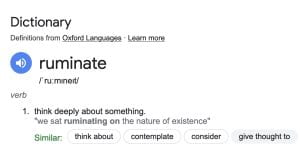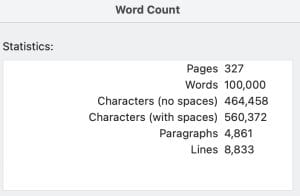So, the vacation comes to an end – well, soon. After a month in Europe it is a relief to be heading home with many new experiences to build into my next book. The main goal on this trip was not to produce another novel, but a photo book entitled “Faces of Europe.” I have accumulated a large number of “people photos” to add to the book, but the time away has also given me space to think about “Faces of Europe” is more depth. In fact, people watching is really observing a reflection of life. Europe is not just about Europeans; it is about the melting pot of Asians, Africans, Chinese, Indian, and Western and Eastern Europeans; it is about war and power struggles – D-Day celebrations and the war in Ukraine; it is about a cold war and a hot summer; of high prices and low wages; Olympic celebrations and the struggle to survive; it’s about Palestinian protests and threats of terrorism. “Faces of Europe” has become more complex than I imagined. There is nothing simple about Europe and it will be a challenge to assemble my photographs to reflect the joy, struggles and diversity I noticed through my lens. During my short stay in Europe I did manage a little minor editing on my new thriller, and even visited Menton – a place on the French Riviera that features in my first thriller, 3 WISE MEN. However, I didn’t feel that any changes needed to be made to the Menton details.
James Hayden
Not writing – well, not intentionally!
 Well, dear bloggers, this may shock you—I am on a long vacation but have no intention to write another book. That’s right, it’s about celebration—celebrating my wife’s very special birthday in Paris. So, writing will take a back seat, though that’s not to say that I won’t find inspiration in being in different places and watching out for interesting characters or settings for my next novel. Will it be a thriller set in Vienna, or a romantic novel based in France? Who knows? The most wonderful thing about writing is that it has few bounds, and the richer the experience (either good or bad) can result in a more satisfying read. Well, that’s the intention.
Well, dear bloggers, this may shock you—I am on a long vacation but have no intention to write another book. That’s right, it’s about celebration—celebrating my wife’s very special birthday in Paris. So, writing will take a back seat, though that’s not to say that I won’t find inspiration in being in different places and watching out for interesting characters or settings for my next novel. Will it be a thriller set in Vienna, or a romantic novel based in France? Who knows? The most wonderful thing about writing is that it has few bounds, and the richer the experience (either good or bad) can result in a more satisfying read. Well, that’s the intention.
So, roll on Singapore, Vienna and so many other places – some we have been to before and some that are new. I must confess that my writing is richer from having been to unique and special places and I am grateful for the opportunity. I also feel obliged to share some of these with my readers. They add detail and authenticity to my writing—a firm foundation for the action. Which raises the question—how accurately do I write? The answer is ‘mostly’. I do take literary licence at times, but only to propel the action. where necessary :-).
It’s All About AI
 AI, or Artificial intelligence, leverages computers and machines to mimic the problem-solving and decision-making capabilities of the human mind. Every day, the news carries AI articles—stories of job losses and cloned personalities that threaten the very fabric of modern society. The reality is far more frightening. AI is developing at a super-fast pace and will impact us all dramatically within the new few years. ChatGPT is a chatbot developed by OpenAI and launched on November 30, 2022. Based on a large language model, it enables users to refine and steer a conversation towards a desired length, format, style, level of detail, and language. It’s a great tool for writing essays and scripts (e.g. for real estate advertising). But, ChatGPT is just the tip of an iceberg. My new novel is based on AI and how it may threaten the banking industry. In fact. my pitch has a focus on AI: Can Artificial Intelligence topple the global economy or restore financial equality? Depends whose side you’re on…
AI, or Artificial intelligence, leverages computers and machines to mimic the problem-solving and decision-making capabilities of the human mind. Every day, the news carries AI articles—stories of job losses and cloned personalities that threaten the very fabric of modern society. The reality is far more frightening. AI is developing at a super-fast pace and will impact us all dramatically within the new few years. ChatGPT is a chatbot developed by OpenAI and launched on November 30, 2022. Based on a large language model, it enables users to refine and steer a conversation towards a desired length, format, style, level of detail, and language. It’s a great tool for writing essays and scripts (e.g. for real estate advertising). But, ChatGPT is just the tip of an iceberg. My new novel is based on AI and how it may threaten the banking industry. In fact. my pitch has a focus on AI: Can Artificial Intelligence topple the global economy or restore financial equality? Depends whose side you’re on…
In the wrong hands, AI is difficult to overcome. What happens when a group of devious computer nerds steal your ID and, along with that, steal your voice? Think of the implications. How can you prove that your duplicate is not you? How can you convince your bank manager or boss that you are who you say you are, when another online “twin” makes the same claims?
Oh, it’s going to be a bumpy ride into the unknown with AI and a clever group of thieves have already planned the heist to outdo all heists. How will they do this? Well, you will have to wait for the release of my new book. 🙂
Happy New Year and Linking Chapters
I hope you all enjoyed a great start to the New Year. Mine was a bit different, with two funerals just days apart. I had the honor of speaking at the funeral of a very good friend who was once my math teacher in senior high school. He and his family remained close to ours ever since and his life was remarkable, yet humble. The second was the passing of my older sister after a long illness. There is little to link these two events, except that both deceased had been teachers and both much loved.
 As I turn back to my new novel I have been struggling to link Chapter Two with Chapter Three. The third chapter is a completely different setting (underwater in a submarine) with new characters. How could I link these to help the book flow for my readers?
As I turn back to my new novel I have been struggling to link Chapter Two with Chapter Three. The third chapter is a completely different setting (underwater in a submarine) with new characters. How could I link these to help the book flow for my readers?
The answer was having both Chapter Two and Three refer to the same place—in this case, Gibraltar. The connection was obvious, yet had eluded me for quite some time. Gibraltar is pivotal to my story and it felt better to bring it forward in the novel to have it centre in the reader’s mind.
Christopher Robin
In a poetic moment I revisited AA Milne’s Buckingham Palace and wove it into my introduction to my new thriller-heist. Why? Well, that may not become obvious until the final chapter(s). Meanwhile, the protagonist suspects that the king does indeed know all about him! [BTW: my sister is called Robin and I was named Christopher]. And, like Alice, there is ‘time for tea’ in Chapter One for the protagonist, among the rising tension of being followed. Perhaps the obvious connection is that the protagonist is called Sir Christopher.

They're changing guard at Buckingham Palace Christopher Robin went down with Alice "Do you think the King knows all about me?" "Sure to, dear, but it's time for tea" Says Alice
What’s the Point in Trying?
“There’s a statistic that circulates the publishing world that only one in six thousand writers will sign with a literary agent. And only a very small percentage of those will ever get published. So what’s the point in trying?”
Such a relevant question. Why climb Everest? Why row across an ocean? Why be a school principal? Why renovate another house? Why? Why? Why?
 I’m going to struggle with a sensible answer, but here goes. I keep trying because I want to reach the greatest audience and I keep trying because I want my heist-thriller to be as polished as possible, which will not happen if I self-publish. Oh, there are many other illogical reasons too :-). Have I felt like giving up? Yes, and even more in recent days. Having a request for my full manuscript created hope to land a literary agent, but this was followed four weeks later by a “No.” After this glimmer of hope it was back to a full re-edit, and chapter reorganisation, before sending out a few more submissions. The recent rise of Artificial Intelligence, and a huge global interest in deep-sea submersibles (with the Titan implosion) should help propel my novel. I’m just waiting for a literary agent to agree.
I’m going to struggle with a sensible answer, but here goes. I keep trying because I want to reach the greatest audience and I keep trying because I want my heist-thriller to be as polished as possible, which will not happen if I self-publish. Oh, there are many other illogical reasons too :-). Have I felt like giving up? Yes, and even more in recent days. Having a request for my full manuscript created hope to land a literary agent, but this was followed four weeks later by a “No.” After this glimmer of hope it was back to a full re-edit, and chapter reorganisation, before sending out a few more submissions. The recent rise of Artificial Intelligence, and a huge global interest in deep-sea submersibles (with the Titan implosion) should help propel my novel. I’m just waiting for a literary agent to agree.
But, the greatest reason is ‘persistence‘ – never giving up on a higher goal and I hope I am able to reach it soon.
Ruminate

 When writing, the plot and characters are uppermost in my mind. It’s a subconscious thing and I find myself thinking about events in my novel while drifting off to sleep, only to have them punctuated by fresh thoughts. These make me force myself awake and make the necessary changes while they are fresh – “I’ll forget them in the morning,” I tell myself. There a catch though. In the morning, have to check that the new thought fits the storyline and doesn’t detract from it or overwhelm it; it has to enhance it to be effective. Ah the joys of ruminating – just going over and over my novel, like cows chewing grass:
When writing, the plot and characters are uppermost in my mind. It’s a subconscious thing and I find myself thinking about events in my novel while drifting off to sleep, only to have them punctuated by fresh thoughts. These make me force myself awake and make the necessary changes while they are fresh – “I’ll forget them in the morning,” I tell myself. There a catch though. In the morning, have to check that the new thought fits the storyline and doesn’t detract from it or overwhelm it; it has to enhance it to be effective. Ah the joys of ruminating – just going over and over my novel, like cows chewing grass:
The Pitch
The Pitch is a snazzy one liner that sums up a novel’s theme. My pitch changed while editing and my professional editor (ex Penguin Publishing) helped shape it into:
Can Artificial Intelligence topple the global economy or restore financial equality? Depends whose side you’re on…
Perhaps our global issue is not Big Brother organisations, but the machines they are building? Food for literary thought.
The Perfect Edit
It’s poetic how some things work out. After months of editing and revising my manuscript, look how many words it ended up…

Yes, some will say it’s too long for a heist-thriller and others will disagree and say they need detail and back story to really get into a novel. For me, it was just where it ended up and, for that reason, it feels right. My first thriller was finished at around 85,000 words but my new one – with the extra words – does seem to have more depth and purpose. I hope readers agree. Hint: do you want to learn about the role of AI in the greatest bank robbery of all time?
Is Your Book Cooked Enough?
We had ribs tonight—delicious ribs with meat falling off the bone and juices charred rich like treacle. It made me wonder if my book has been cooked long enough to have the same rich flavour? A book that has been slow-cooked, then fried to perfection. Is mine like that? Of course, the answer was “no” a year ago, but now is a simmering “yes.”
Full of flavour? I hope so.
A plot that sticks like a rich sauce? Perhaps.
An ending that leaves a reader full and satisfied? I can’t give that away, can I?
You see, it’s only the reader who can tell me if my book is cooked enough.
